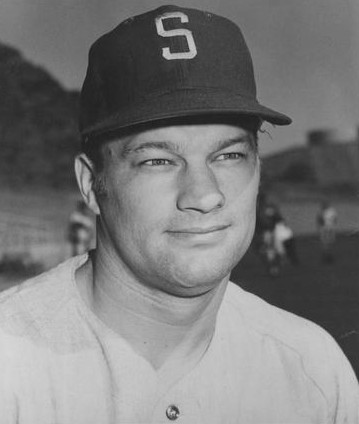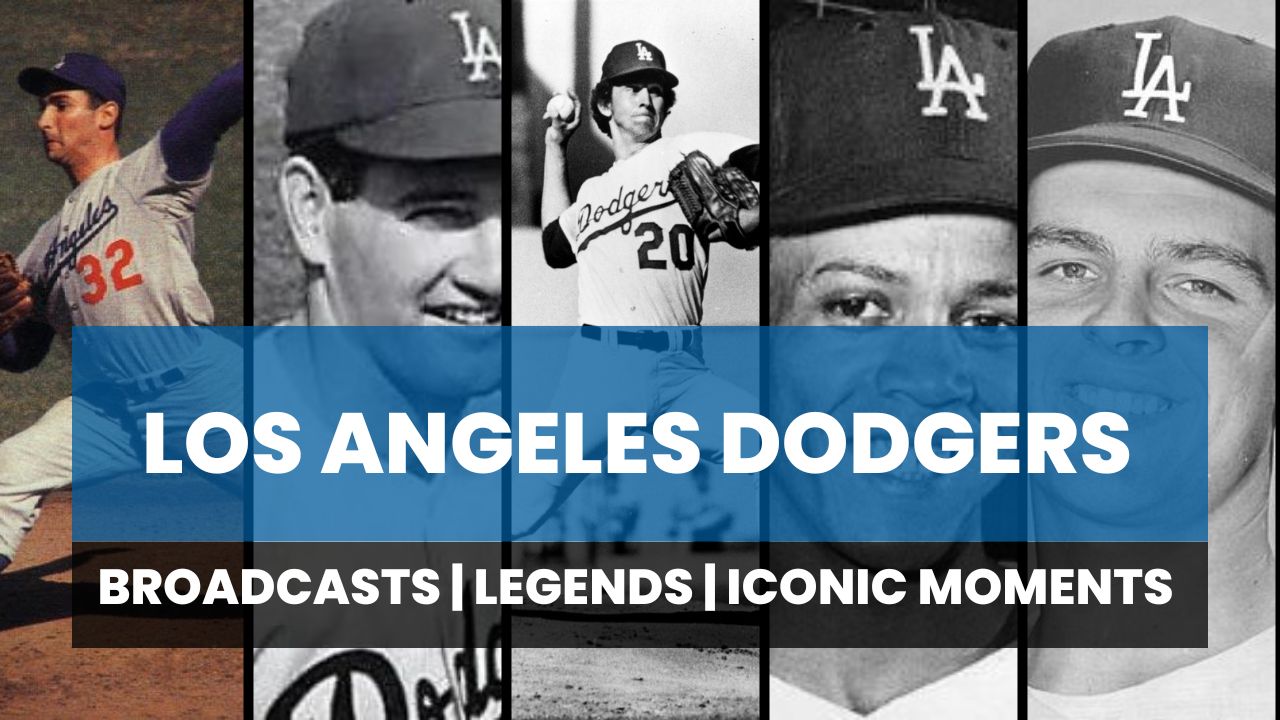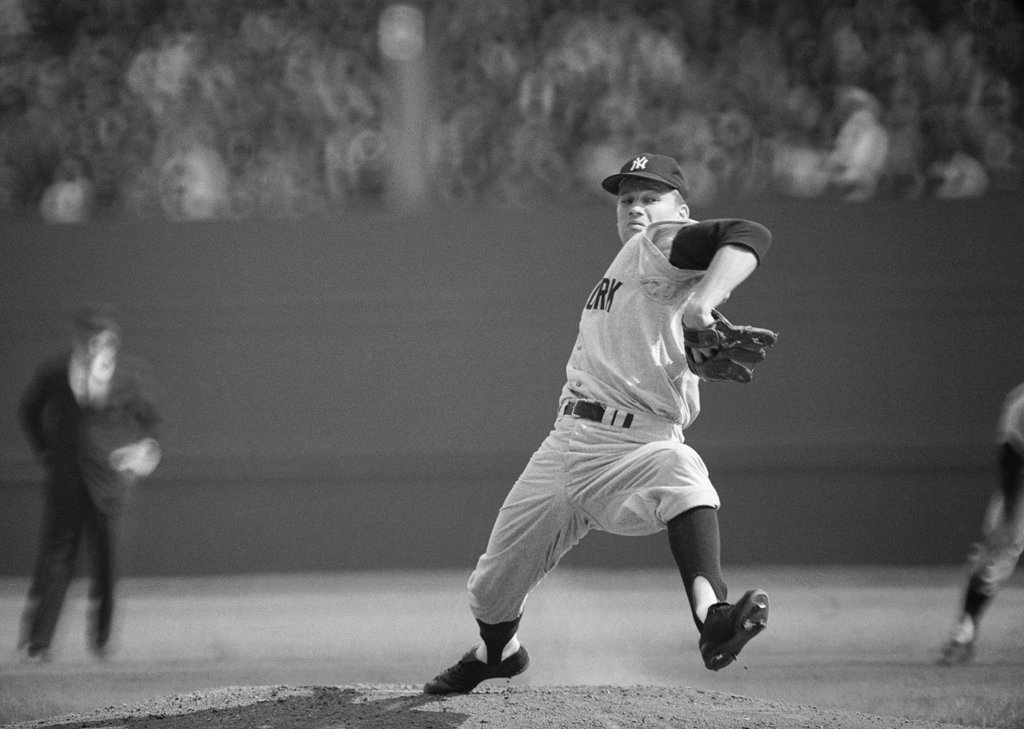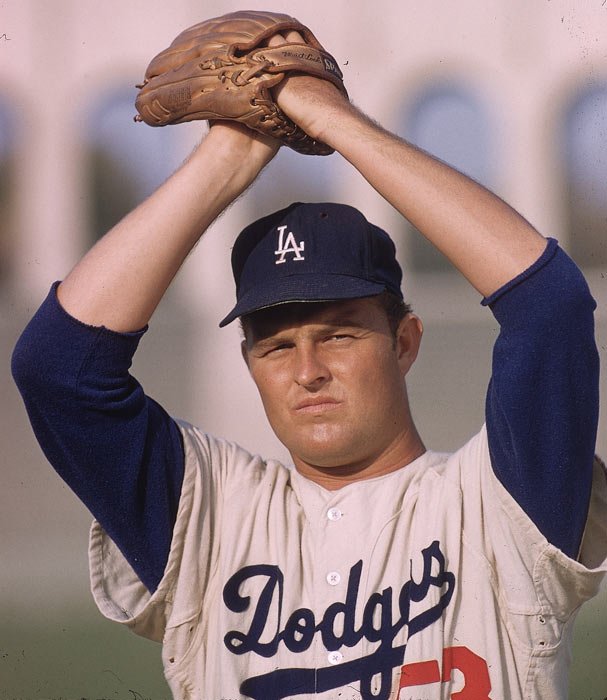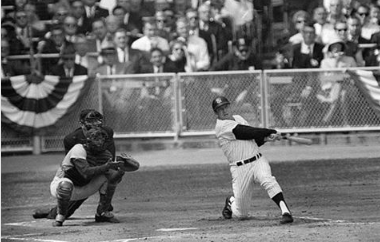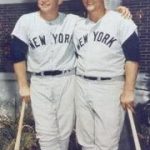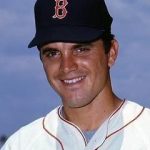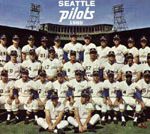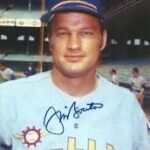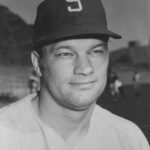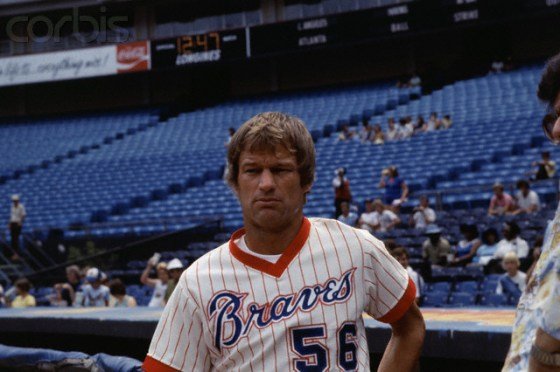Jim Bouton Stats & Facts
Jim Bouton
Position: Pitcher
Bats: Right • Throws: Right
6-0, 170lb (183cm, 77kg)
Born: March 8, 1939 in Newark, NJ
Died: July 10, 2019 in Great Barrington, MA
High School: Bloom HS (Chicago Heights, IL)
School: Western Michigan University (Kalamazoo, MI)
Debut: April 22, 1962 (11,983rd in major league history)
vs. CLE 3.0 IP, 1 H, 1 SO, 2 BB, 0 ER
Last Game: September 29, 1978
vs. CIN 3.0 IP, 6 H, 2 SO, 4 BB, 6 ER, L
Full Name: James Alan Bouton
Nicknames: Bulldog
Pronunciation: \BOW-tun\
Nine Players Who Debuted in 1962
Willie Stargell
Bob Bailey
Ed Kranepool
Cookie Rojas
Tony Oliva
Gaylord Perry
Bob Veale
Dick Radatz
Tommy Harper
All-Time Teammate Team
Coming Soon
Notable Events and Chronology
Biography
Pitcher, author, philosopher, and pundit, Jim Bouton bore little resemblance to the vast majority of players who performed in the major leagues before he joined the New York Yankees in 1962. One of the new breed of ballplayers that began entering the game during the 1960s, Bouton was not as hardened or rough around the edges as most of the players who preceded him. An intellectual at heart, Bouton preferred to discuss politics or journalism, rather than spend much of his free time hunting or chasing women. Bouton’s cerebral nature endeared him to the New York media, with whom he shared an amicable relationship during his seven years in the big city. However, it also alienated him somewhat from many of his teammates, who resented the inordinate amount of time he devoted to conversing with the members of the press corps. Nevertheless, Bouton’s teammates rarely expressed their dissatisfaction with him early in his career, when the righthander was one of the American League’s finest pitchers.
Biography:
Born in Newark, New Jersey on March 8, 1939, James Alan Bouton moved to Chicago with his family as a young boy. After graduating from Chicago’s Bloom Township High School, Bouton attended Western Michigan University, for whom he pitched until being signed by the Yankees as an amateur free agent in 1959.
Bouton spent three years in New York’s minor-league farm system, finally earning his call-up to the majors early in 1962. The 23-year-old righthander initially worked out of the bullpen, before earning a job as a spot starter during the season’s second half. In 16 starts and 36 total appearances, he ended up posting a record of 7-7 and an ERA of 3.99. Bouton developed into one of the American League’s top hurlers the following year, rivaling Whitey Ford as the ace of New York’s pitching staff. The Newark native finished the campaign 21-7 with a 2.53 ERA, while allowing the opposition only 191 hits in 249 innings of work. In addition to finishing among the league leaders in wins, ERA, and innings pitched, he placed second in the junior circuit with six shutouts. Bouton’s outstanding performance earned him the only All-Star selection of his career. Although he lost his only World Series start to Don Drysdale in Game Three of the Dodgers’ four-game sweep of the Yankees, Bouton surrendered just one run and four hits in seven strong innings of work. Los Angeles scored its only run in the first inning on a walk, a wild pitch, and a single.
Bouton had another outstanding season in 1964, compiling a record of 18-13 with a 3.02 ERA, throwing 271 innings, and leading the league with 37 starts. He also won two games in the World Series against the Cardinals, winning Game Three, 2-1, on a complete-game six-hitter, and emerging victorious in Game Six by a score of 8-3.
However, Bouton’s ferocious style of pitching eventually proved to be his downfall. A fierce competitor, he gradually acquired the nickname The Bulldog for his tenacity, which frequently caused him to lose his cap as he hurled both the ball and his body towards home plate. Unfortunately, the aggressive approach Bouton applied to his craft brought his days as an effective pitcher to a premature end. He developed arm problems early in 1965 that greatly reduced the velocity on his fastball, and that forced him to spend the next two seasons pitching in a great deal of pain. Although Bouton doggedly took his turn on the mound whenever he found himself physically able to do so, he had little left with which to challenge major league hitters. Yet, after finishing 1965 with a record of only 4-15 and an ERA of 4.82, he pitched well the following year, compiling an earned run average of 2.69, despite finishing just 3-8 on the season for the last-place Yankees.
Having lost his fastball, Bouton became more of a junk pitcher, and he even began experimenting with the knuckleball after he moved to the bullpen in 1968. After being released by the Yankees during the season, he spent the rest of the year pitching in the minor leagues before resurfacing with the expansion Seattle Pilots the following year. He split 1969 between the Pilots and Houston Astros before retiring midway through the 1970 campaign after being sent to the minors by Houston.
While in Seattle and Houston, Bouton spent much of his free time chronicling the events of the 1969 campaign. Combining his observations with notes he had taken during his time in New York, Bouton ended up compiling a frank, insider’s look at a professional sports team that he eventually released as a book entitled Ball Four. Later hailed by many as a literary masterpiece, Bouton’s work was a true ground-breaker in that it broke baseball taboos by revealing the personal lives of his teammates, past and present. Baseball journalists had previously concealed from the public the private affairs of the players and their sometimes raucous behavior. Bouton, though, pulled no punches, revealing the darker sides of several former teammates and exposing the childlike manner with which they sometimes conducted themselves. In particular, the book painted a somewhat negative picture of baseball hero and icon Mickey Mantle, disclosing his drinking habits and womanizing, and portraying him as a somewhat self-absorbed, immature, and adolescent jock.
While the public found Ball Four fascinating reading, the baseball community expressed shock and dismay over its contents. Calling the work “detrimental to baseball,” Commissioner Bowie Kuhn tried to force Bouton to sign a statement saying that the book was completely fictional. Bouton, though, refused to deny any of its revelations. Many of Bouton’s teammates never forgave him for betraying their trust. In fact, the pitcher subsequently became persona non grata in baseball circles, being denied entry to major league clubhouses and being excluded from events such as the annual Old Timer’s Day at Yankee Stadium.
Even though Bouton suffered the indignity of essentially being blacklisted from baseball, Ball Four reaped huge benefits for him away from the game. Becoming an even bigger star as the book soared to the top of the best-seller list, the former pitcher found the door open for him to embark on a brief career as a television sports reporter. He also went on the college lecture circuit, delivering humorous talks on his experiences.
Still, the urge to play baseball remained strong within Bouton. As the pitcher-turned-author said in Ball Four, “You spend a good piece of your life gripping a baseball and in the end it turns out that it was the other way around all the time.” After a comeback bid with the Class A Portland Mavericks in 1975 failed to lead to any offers, Bouton returned to the diamond again in 1977 when Bill Veeck signed him to a minor league contract with the Chicago White Sox. Bouton’s second attempt proved to be unsuccessful as well, but he received an offer from Atlanta Braves owner Ted Turner in 1978. After going 1-3 in five starts with the Braves, the 39-year-old knuckleballer retired for the final time. He subsequently wrote about his attempted comeback in an updated version of his first book, which he called Ball Four Plus Ball Five. He later completed work on three more books, which were entitled Ball Six, Ball Four: The Final Pitch, and Foul Ball. Bouton also became involved in various baseball-related businesses, including collaborating on the invention of “Big League Chew,” a shredded bubblegum designed to resemble chewing tobacco and sold in a tobacco-like pouch. He also co-authored a baseball novel called Strike Zone and edited an anthology about managers, entitled I Managed Good, But Boy Did They Play Bad.
Although the Yankees never formally stated they had blacklisted Bouton, they continued to exclude him from their annual Old-Timer’s Day ceremonies long after he announced his second retirement. Rumor had it that Mickey Mantle himself informed the Yankees he intended to stay away from Yankee Stadium if the team invited Bouton back for the annual festivities. Mantle, though, later denied the allegations, stating he bore no ill feelings towards Bouton. In fact, any feelings of uneasiness that may have existed between the two men evaporated in 1994 when Bouton sent Mantle a condolence card expressing his sympathies over the passing of the latter’s son Billy due to cancer. Mantle acknowledged Bouton’s kind gesture by leaving his former teammate a lengthy answering-machine message during which he stated he harbored no ill will towards Bouton.
Although it took another four years for him to do so, Bouton eventually reconciled with the Yankees as well. The former pitcher’s oldest son Michael wrote an eloquent Father’s Day open letter to the team in June of 1998 in which he described the agony his father experienced following the August 1997 death of Michael’s sister Laurie at age 31. The New York Times published the letter, creating a wave of sympathy for Bouton and placing public pressure on the Yankees to invite the former pitcher back to Yankee Stadium. One month later, Bouton received a standing ovation when he took the mound at Yankee Stadium on Old Timer’s Day sporting his familiar number 56. He has since become a fixture at the annual ceremonies.
@ET-DC@eyJkeW5hbWljIjp0cnVlLCJjb250ZW50IjoicG9zdF90YWdzIiwic2V0dGluZ3MiOnsiYmVmb3JlIjoiTGVhcm4gTW9yZSBhYm91dCB0aGUgdGVhbXMsIHBsYXllcnMsIGJhbGwgcGFya3MgYW5kIGV2ZW50cyB0aGF0IGhhcHBlbmVkIG9uIHRoaXMgZGF0ZSBpbiBoaXN0b3J5IC0gLSAtIC0gLSAtIC0gIiwiYWZ0ZXIiOiIiLCJsaW5rX3RvX3Rlcm1fcGFnZSI6Im9uIiwic2VwYXJhdG9yIjoiIHwgIiwiY2F0ZWdvcnlfdHlwZSI6InBvc3RfdGFnIn19@
Factoids, Quotes, Milestones and Odd Facts
Coming soon
Other Resources & Links
View Player Info from the B-R Bullpen
View Player Bio from the SABR BioProject
If you would like to add a link or add information for player pages, please contact us here.

